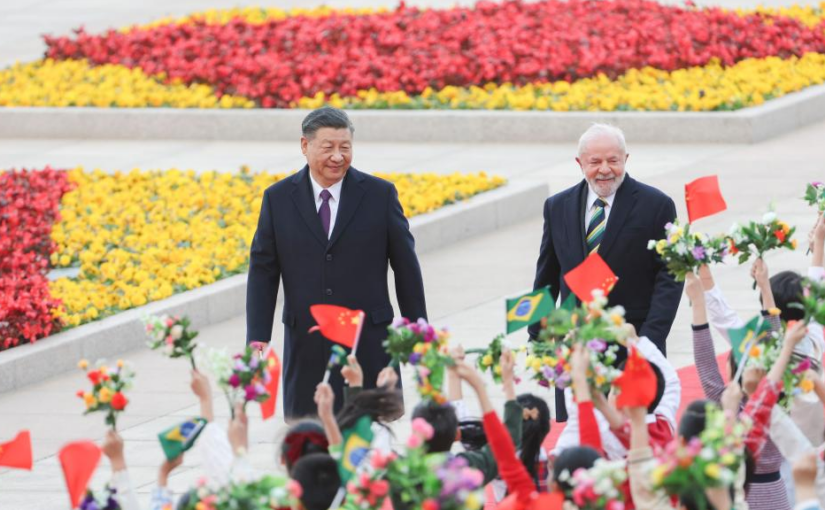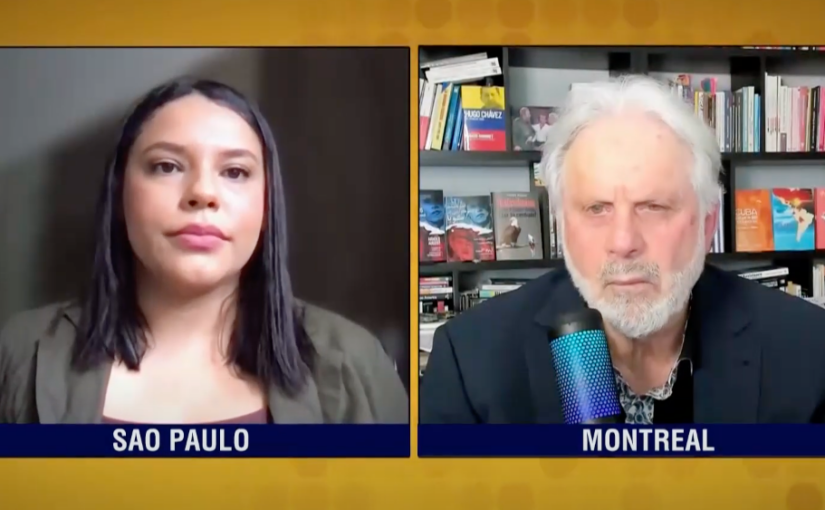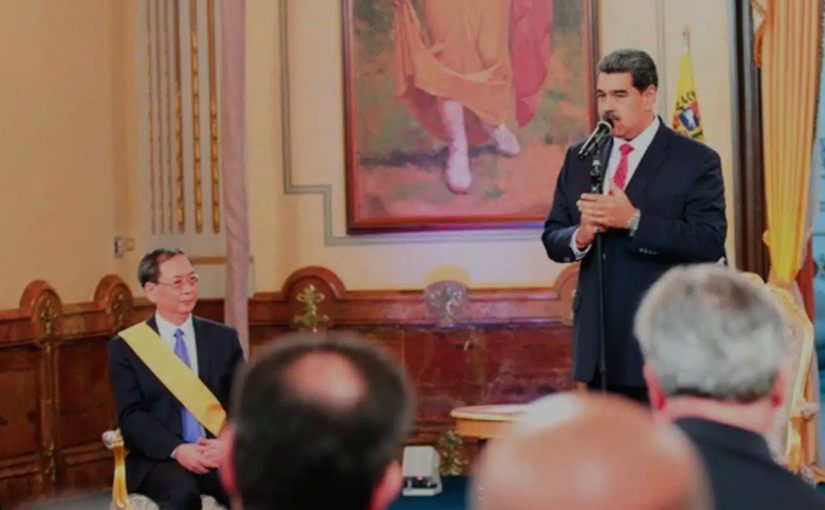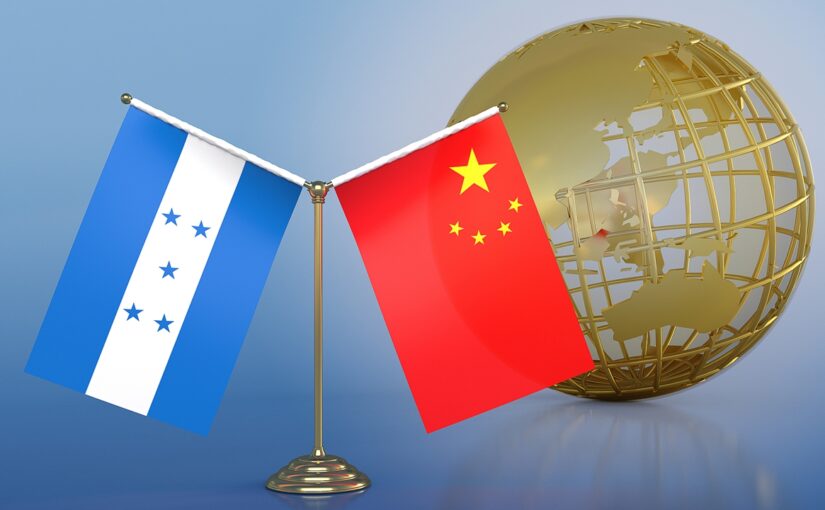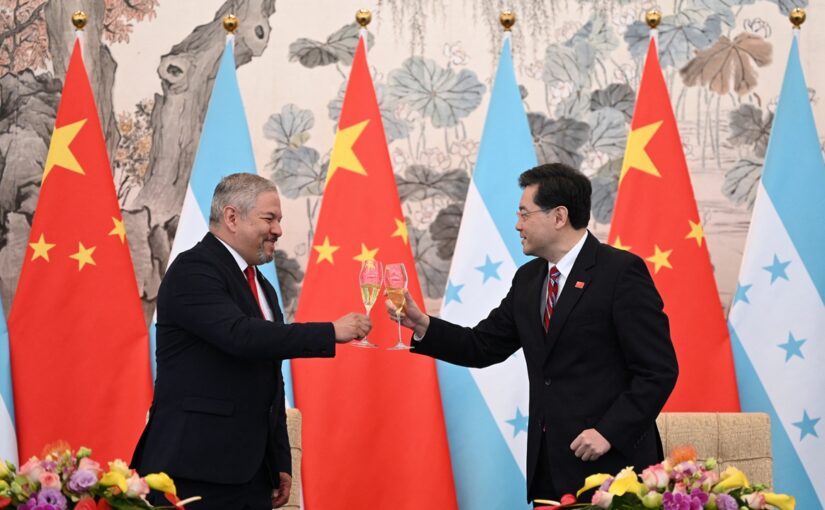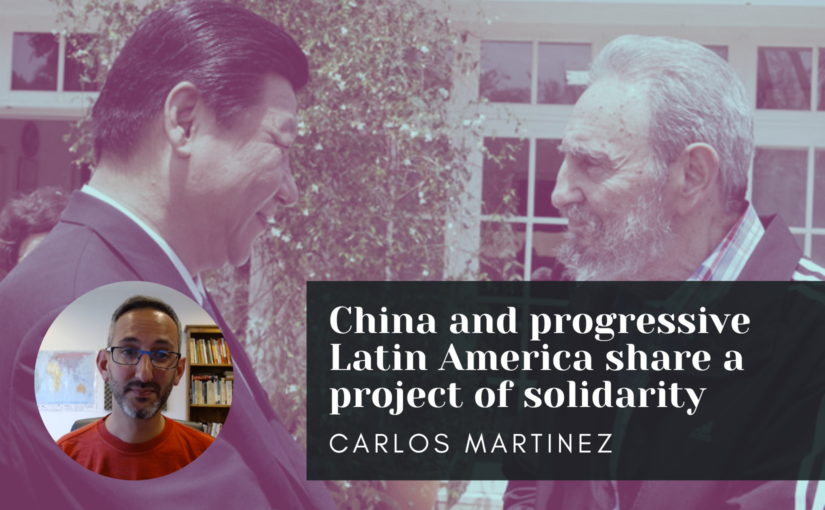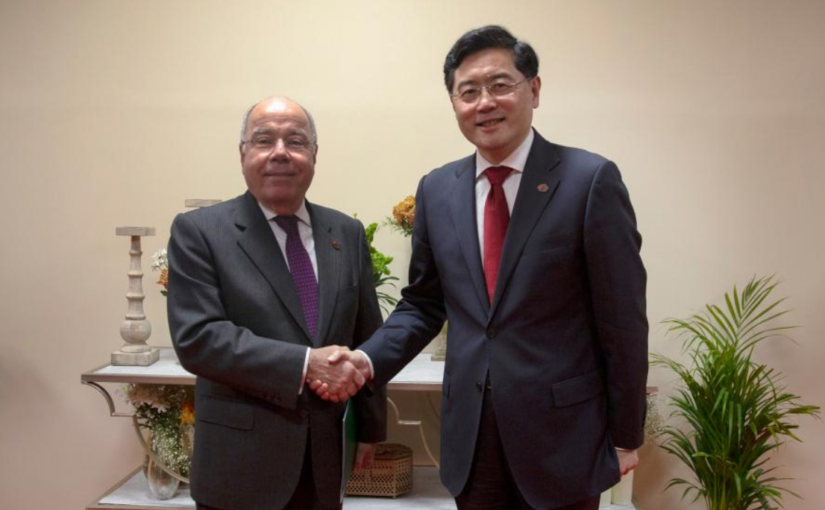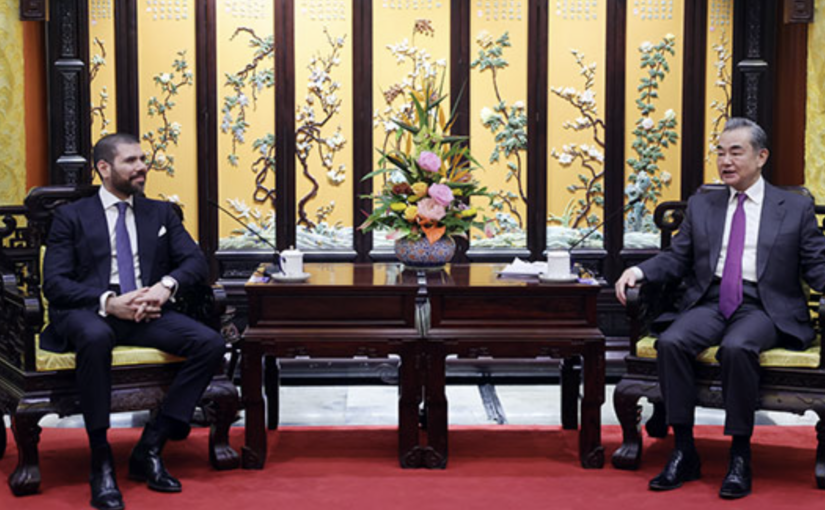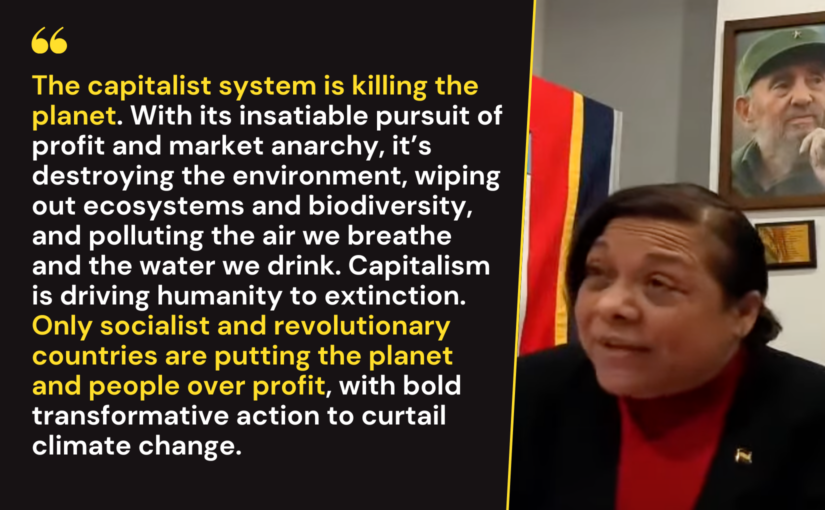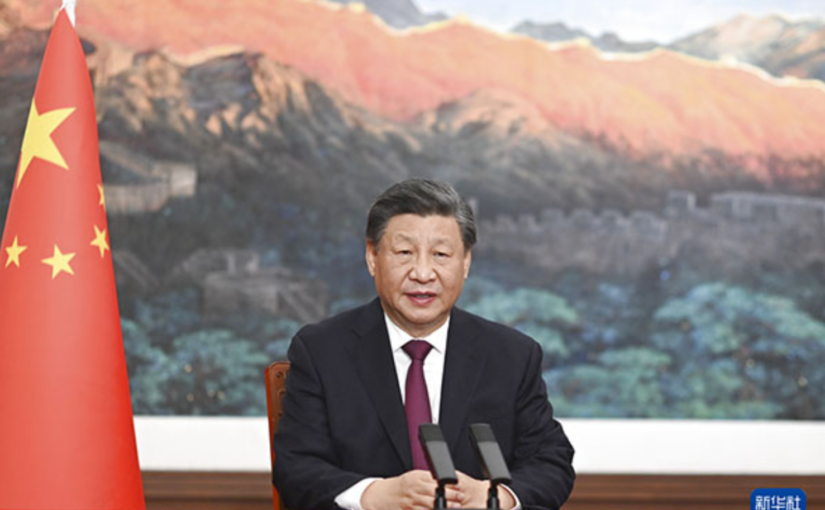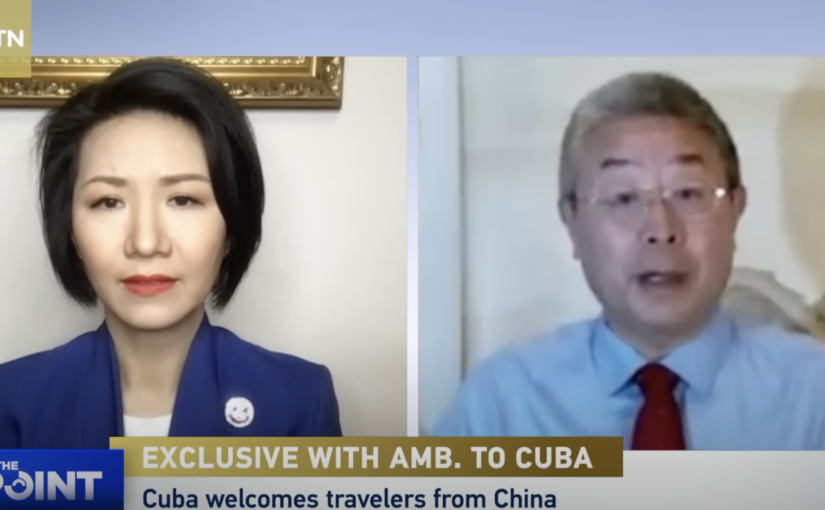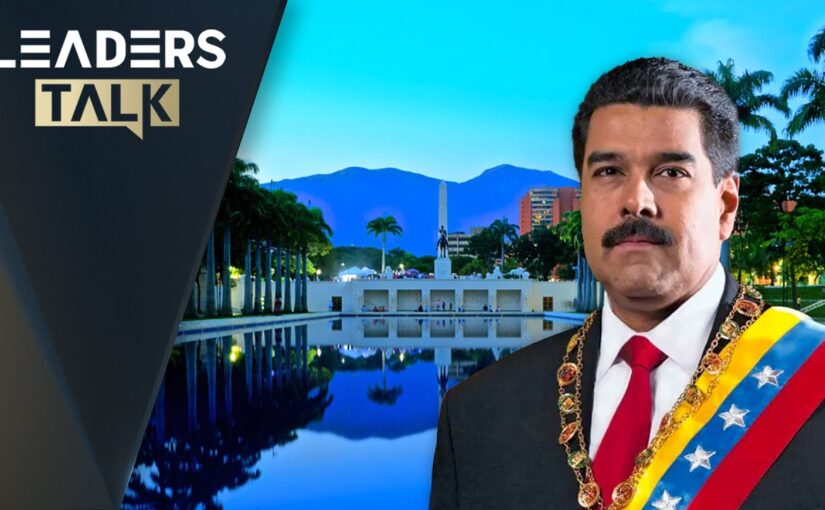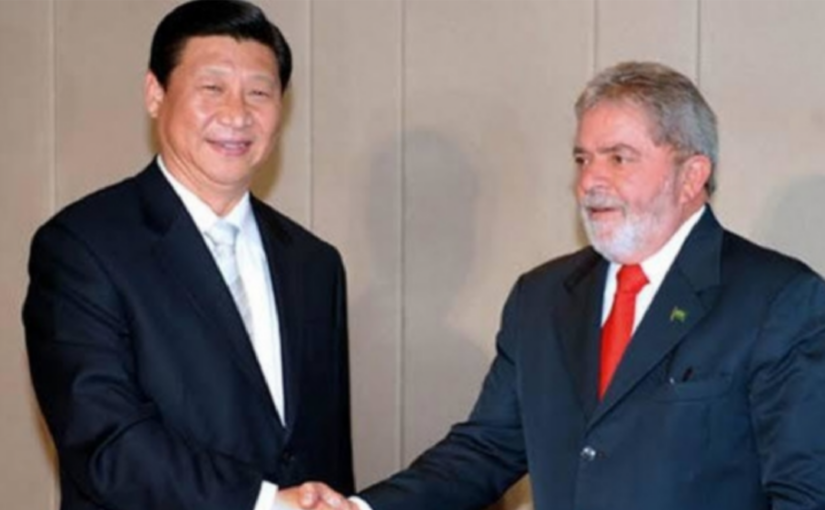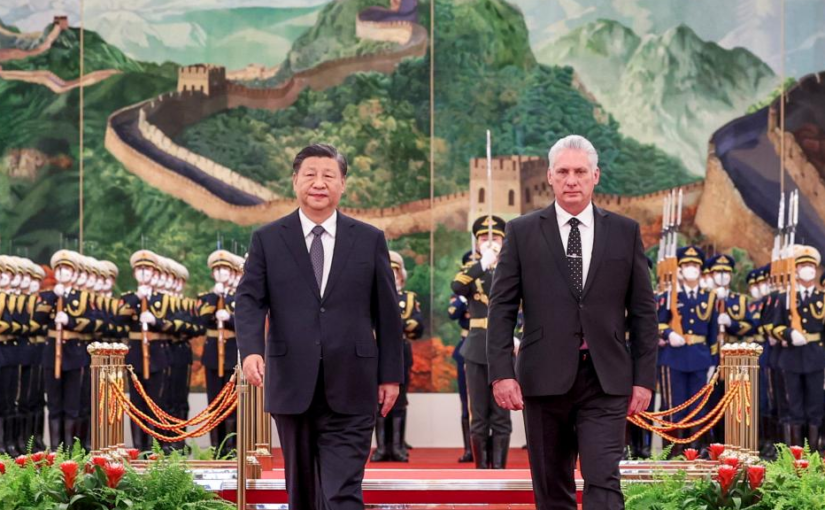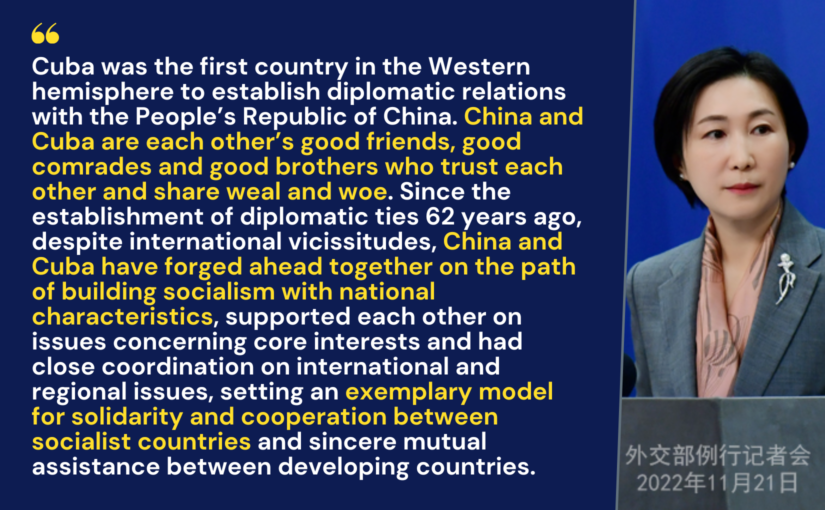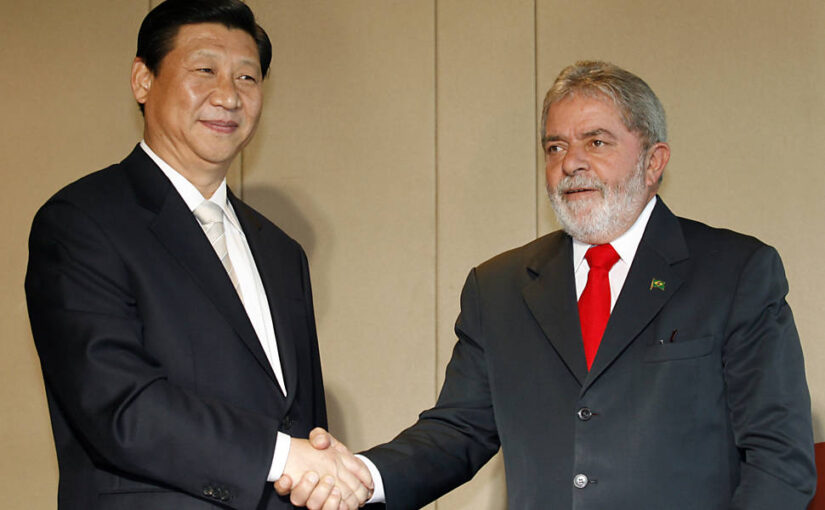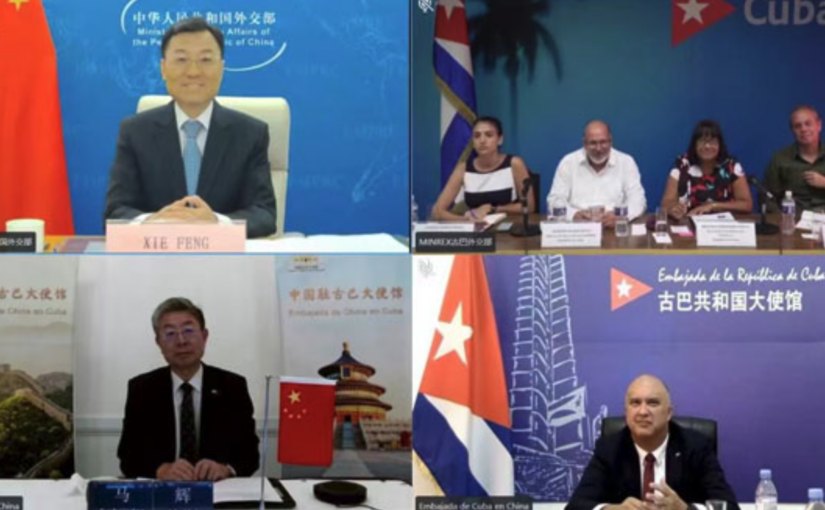The state visit to China, April 12-15, by Brazilian President Luiz Inácio Lula da Silva, his fifth such visit and his first visit outside the Americas since the start of his third presidential term, was a complete success, characterised by the great warmth shared by the two countries and peoples as well as by their respective leaders.
The high point of the visit was the formal talks between the two heads of state, which followed a grand welcoming ceremony, where the playing of a popular Brazilian song from the period of struggle against the pro-American military dictatorship, but which also refers to a new era, a concept intrinsic to Xi Jinping Thought, visibly moved at least one Brazilian minister to tears.
Welcoming President Lula, Xi Jinping acclaimed him as an old friend of China, who he was really happy to meet again. He once again expressed his sympathy for Lula’s recent illness, which had caused him to postpone his visit, as well as his appreciation that he had rescheduled so soon after his recovery.
President Xi pointed out that China and Brazil are the two biggest developing countries and emerging markets in the Eastern and Western hemispheres. As comprehensive strategic partners, China and Brazil share extensive common interests. The overarching, strategic and global influence of China-Brazil relations continues to grow.
The two sides, Xi continued, need to deepen cooperation, steadily advance their major cooperation projects, and further unleash cooperation potential in agriculture, energy, infrastructure, space, aviation, innovation, and so on.
On regional and international issues, President Xi pledged China’s firm support for Latin American and Caribbean (LAC) countries to cement the sound momentum of peace, stability, independence, solidarity and development, advance regional integration and play a greater role in international affairs. China will work with Brazil to ensure the continued success of the China-CELAC [Community of Latin American and Caribbean States] Forum, take cooperation between China and LAC countries to a new level, and achieve common development. China will also work with Brazil to strengthen cooperation with MERCOSUR [Southern Common Market] and UNASUR [Union of South American Nations]. Facing global changes of a magnitude unseen in a century, China and Brazil are resolved to stand on the right side of history, practice true multilateralism, advocate the common values of humanity, work for a more just and equitable international governance system, truly safeguard the common interests of developing countries and international justice and equity, and build a community with a shared future for humanity.
Responding, President Lula said that his choice for his first visit outside the Americas since his return to the presidency reflects Brazil’s affection for China and commitment to Brazil-China relations. Brazil is committed to building closer relations with China from the strategic perspective of shaping a just and equitable international order. Noting his excellent visit to the Huawei research institute in Shanghai, where he met Chinese business representatives, President Lula expressed deep admiration for China’s 5G progress and his hope to expand Brazil-China cooperation in relevant fields. He believed deeper and greater cooperation with China would contribute to Brazil’s reindustrialisation, help address poverty and other issues and deliver benefits to the people.
On the crisis in Ukraine, both sides agreed that dialogue and negotiation is the only feasible way for settling it and that all efforts that are conducive to its peaceful resolution should be encouraged and supported. They appealed to more countries to play a constructive role for a political settlement.
Following their talks, the two presidents witnessed the signing of 15 bilateral agreements on trade and investment, digital economy, scientific and technological innovation, information and communications, poverty reduction, quarantine, space and other areas. They also issued a Joint Statement Between the People’s Republic of China and the Federative Republic of Brazil on Deepening the Comprehensive Strategic Partnership.
The joint statement consists of 49 clauses covering the whole spectrum of bilateral relations as well as a number of other issues. In it, the two leaders called for deepening cooperation in such areas as poverty reduction, social development, and scientific and technological innovation, as well as expanding into new areas of cooperation such as environmental protection, tackling climate change, the low-carbon economy and the digital economy.
They affirmed the central role of the United Nations in the international system and supported the promotion of active discussions amongst BRICS members on the group’s expansion process. China expressed its support to the Brazilian G20 Presidency, to begin on December 1 2023, seen as an opportunity to strengthen the priorities of developing countries within the group. Attention was also paid to the need to strengthen bilateral cooperation in the area of environmental protection, combating climate change and the loss of biodiversity, promoting sustainable development and ways to speed up the transition to a low-carbon economy. And they agreed to deepen dialogue in the economic-financial area and to strengthen trade in local currencies.
The agreement noted that: “Faced with the return of the upward trajectory of people in a state of food insecurity in the world, the two parties recalled the successful experience of both countries in the fight against hunger and extreme poverty, and in the adoption of measures to facilitate low-income populations’ access to healthy eating. Given the commitment of both countries in eradicating hunger and extreme poverty at a global level and in line with the United Nations Decade for Family Farming (2019-2028), they recognised the central role of social policies and family farming for the combating of poverty and malnutrition. In this regard, they agreed to strengthen bilateral cooperation. This will establish a joint work plan to address issues related to the fight against hunger and poverty and for rural development, including cooperation in policies and exchange of experiences aimed at improving income transfers, socio-economic inclusion and the sustainability of food production, whether through technical cooperation, adequate machinery, or renewable energy solutions adapted to small rural properties.”
Reflecting on the Covid-19 pandemic, the statement affirmed that Chinese vaccines were instrumental in combating the pandemic in Brazil and contributed to saving millions of Brazilian lives.
The final clause of the agreement states that: “The parties recognised the full success of President Lula’s visit and the outstanding significance of this visit in the history of Brazil-China relations. President Lula thanked President Xi Jinping and the Chinese government and people for the warm welcome and great hospitality received during his visit to China and invited President Xi Jinping to make a State Visit to Brazil on an opportune date in 2024 to celebrate the 50 years of diplomatic relations between Brazil and China. President Xi Jinping expressed, with satisfaction, his gratitude for the invitation, and the parties will follow-up on it through diplomatic channels.”
We reprint below a report on the talks between the two presidents and the full text of the joint statement. They originally appeared on the websites of the Chinese and Brazilian foreign ministries respectively.
President Xi Jinping Holds Talks with Brazilian President Lula da Silva
On the afternoon of 14 April, President Xi Jinping held talks with Brazilian President Lula da Silva, who is on a state visit to China, at the Great Hall of the People.
President Xi extended a warm welcome to President Lula. He pointed out that China and Brazil are the two biggest developing countries and emerging markets in the Eastern and Western hemispheres. As comprehensive strategic partners, China and Brazil share extensive common interests. The overarching, strategic and global influence of the China-Brazil relations continues to grow. China always views and develops relations with Brazil from a strategic and long-term perspective, and sees the relationship as a high priority on its diplomatic agenda. China will work with Brazil to create a new future for their relations in the new era, deliver greater benefits to the two peoples, and play an important and positive role for peace, stability and prosperity in their regions and around the world.
Continue reading Lula’s successful visit serves to deepen Brazil-China partnership